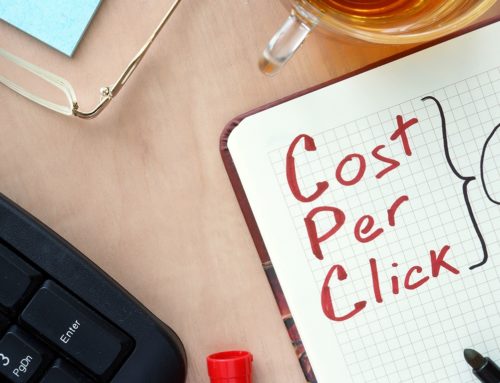Confused about the difference between CPA vs. CPC? Don’t worry – we’ll clear the air and give you the acronym awareness you need.
What is CPC?
CPC stands for cost per click. It’s an online advertising pricing model in which businesses pay a fee each time their ad is clicked. However, there’s an important element here that isn’t really captured by the CPC acronym: dynamic pricing.
In most cases – such as with AdWords, Bing and so on – advertisers who go the CPC route don’t pay the same amount for each click. The amount they
pay depends on several factors, including how competitive their desired keywords are. All else being equal, an advertiser will pay more for a coveted keyword, and less for one that is not as popular (i.e. a long-tail keyword).
As a result of the above, CPC doesn’t necessarily translate directly into a predictable number of clicks. In other words: a click on the same ad may cost an advertiser $1, $2 or $3 per click (we’re just picking simplified numbers here).
If an advertiser has a daily budget of $300 and uses all of it, that means they could have anywhere from 100 to 300 clicks. They’ll have more clicks if they paid a lower average CPC, and they’ll have fewer clicks if they paid a higher average CPC.
What is CPA?
Now let’s flip to the other side of the CPC vs. CPA discussion. CPA stands for cost per acquisition (sometimes this is referred to as cost per action).
Here’s the CPA scoop: instead of focusing on just the click itself, the spotlight is on what a prospect does after they’ve clicked on an ad, such as signing up for a newsletter, watching a video, requesting a callback, or taking any other desired and specified action. Every time this happens, the advertiser is billed accordingly.
Google requires advertisers to have at least 15 conversions (i.e. prospects taking desired actions) in the last 30 days before it will allow CPA campaigns. What’s more, for CPA to deliver ROI, campaigns need to be optimized and have strong click-through-rates, conversion rates and keyword quality.
Who Wins the Great CPC vs. CPA Battle?
As you might expect, CPC and CPA can play in the same PPC sandbox. Some advertisers even leverage both types of campaigns at the same time, but usually it’s one or the other. Essentially, it comes down to good old fashioned prospecting.
Advertisers that have a high quality PPC-driven pipeline are often better off with CPA. While they may pay more for each click, and also get relatively fewer clicks than running a CPC campaign, they’ll be closing more deals and generating more revenue.
On the other hand, advertisers that don’t yet have an excellent click-through-rate and a steady history of conversions – or who need to spend some time optimizing their PPC profile to get a better quality score – are usually better off with CPC. They’ll start getting clicks within hours of launching their ad. What’s more, as noted by Investopedia.com, CPC is a good choice when advertisers have a set daily budget. Once they hit that amount, their ads will be automatically pulled out of the rotation.
Learn More
At Leap Clixx, we manage and optimize both CPC and CPA campaigns for our customers. We know what works, and just as importantly, we know what doesn’t and why. Give us a call today at 314-641-1000 or request a free consultation, and we’ll explain the ins and outs of CPA vs. CPC.
For more on Google AdWords, be sure to download our FREE eBook “Why Google AdWords Should Be Part of Your Inbound Marketing Strategy“:
{{cta(‘2c627747-9534-4cc1-8eef-52d39e7ce4f1’)}}





